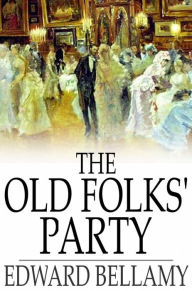Edward Bellamy
Edward Bellamy (March 26, 1850 – May 22, 1898) was an American author, journalist, and political activist most famous for his utopian novel, Looking Backward. Bellamy's vision of a harmonious future world inspired the formation of numerous "Nationa
... Read more
Edward Bellamy (March 26, 1850 – May 22, 1898) was an American author, journalist, and political activist most famous for his utopian novel, Looking Backward. Bellamy's vision of a harmonious future world inspired the formation of numerous "Nationalist Clubs" dedicated to the propagation of Bellamy's political ideas.
After working as a journalist and writing several unremarkable novels, Bellamy published Looking Backward in 1888. Looking Backward was one of the most commercially successful books published in the United States in the 19th century, and it especially appealed to a generation of intellectuals alienated from the dark side of Gilded Age. In the early 1890s, Bellamy established a newspaper known as The New Nation and began to promote united action between the various Nationalist Clubs and the emerging Populist Party. He published Equality, a sequel to Looking Backward, in 1897, and died the following year.
Bellamy's early novels, including Six to One (1878), Dr. Heidenhoff's Process (1880), and Miss Ludington's Sister (1885) were unremarkable works, making use of standard psychological plots.
A turn to utopian science fiction with Looking Backward, 2000–1887, published in January 1888, captured the public imagination and catapulted Bellamy to literary fame. The publisher of the book could scarcely keep up with demand. Within a year the book had sold some 200,000 copies and by the end of the 19th century, it had sold more copies than any other book published in America up to that time except for Uncle Tom's Cabin by Harriet Beecher Stowe and Ben-Hur: A Tale of the Christ by Lew Wallace. The book gained an extensive readership in Great Britain, as well, with more than 235,000 copies sold there between its first release in 1890 and 1935.
Less






















.jpg)

.jpg)
.jpg)
.jpg)
.jpg)
.jpg)
.jpg)
.jpg)
.jpg)